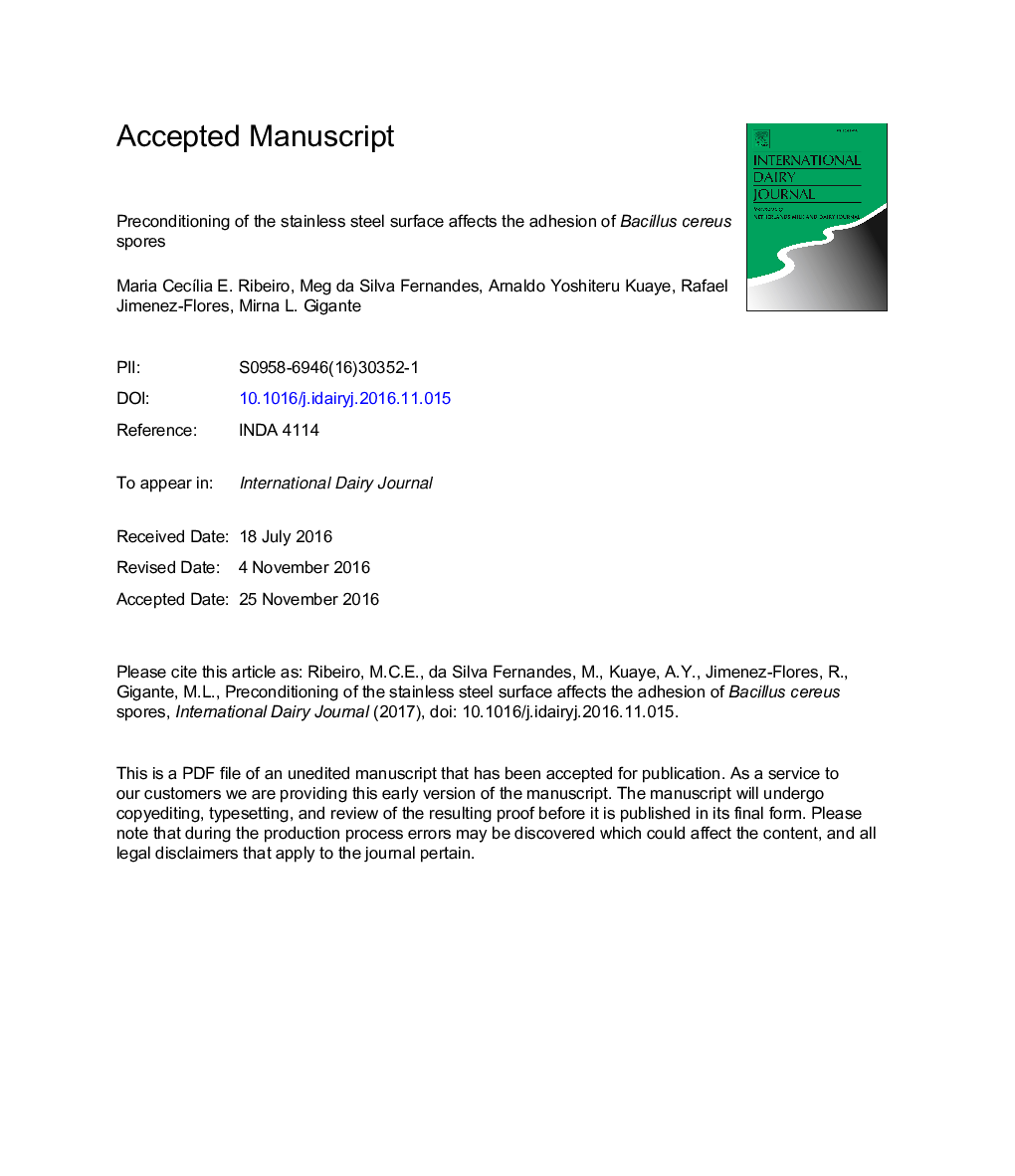| Article ID | Journal | Published Year | Pages | File Type |
|---|---|---|---|---|
| 5541207 | International Dairy Journal | 2017 | 33 Pages |
Abstract
The adhesion of Bacillus cereus on stainless steel, with and without prior conditioning of the surface (water, skimmed milk, and whole milk) was evaluated. Inocula consisting of a pool of spores of four different B. cereus strains isolated from the dairy industry, and spores of B. cereus ATCC 14579 were used. The pool of B. cereus spores adhered in all conditions evaluated. Higher adhesion of B. cereus spores (4.93 log cfu cmâ2) was observed when using whole milk as conditioning matrix. However, without prior conditioning, lower adhesion was observed (3.01 log cfu cmâ2) when the pool of B. cereus spores was inoculated on whole milk, suggesting the interaction between milk fat and microorganism on the stainless steel. The pool of B. cereus spores showed higher adhesion to the surface, possibly due to its greater hydrophobicity (66%) when compared with the B. cereus ATCC 14579 spores (47%).
Related Topics
Life Sciences
Agricultural and Biological Sciences
Food Science
Authors
Maria CecÃlia Ribeiro, Meg da Silva Fernandes, Arnaldo Yoshiteru Kuaye, Rafael Jimenez-Flores, Mirna Gigante,
